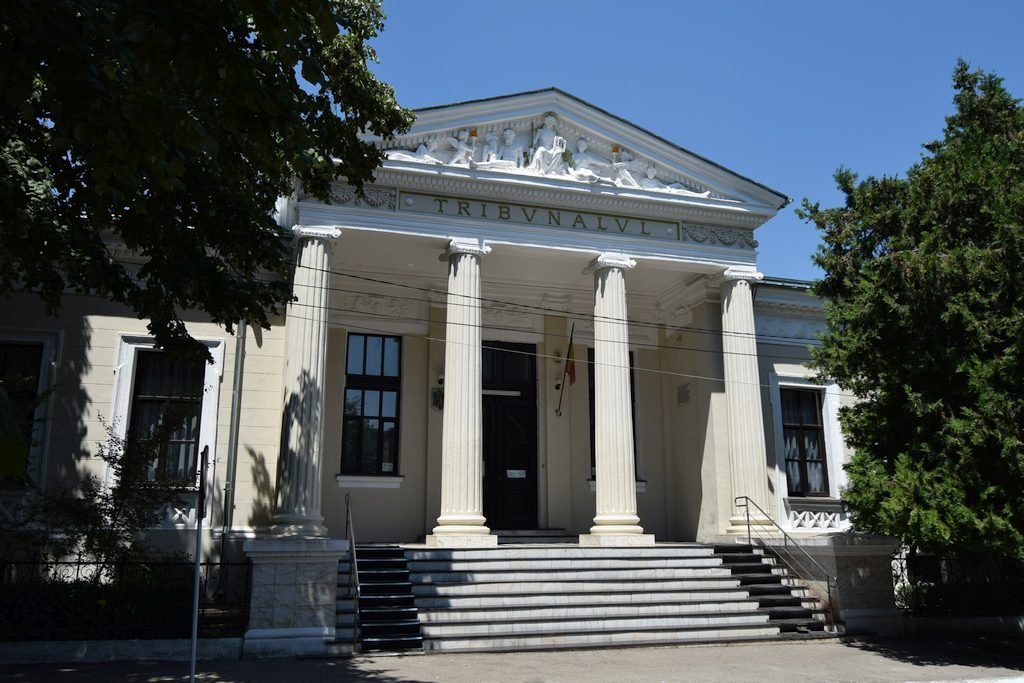

Starting with year 1855, with mention in an official document of the city Turnu Magurele, the city grew no faster or slower than its related cities on the Danube, of course taking into account geographical size, number of inhabitants or economic strength and specificity of the essential activities. Being a county capital for 112 years, it was imposed that for the effective exercise of political and social-administrative activities, appropriate spaces or premises must exist.
In this way began in 1903 the construction of an edifice intended to be the tribunal, which is currently impressive by proportions, harmony and functionality designed by those Italian craftsmen who built it. In 1923 was added another wing to the building, structural combined to the first body, and in 1997 was made an extensive overhaul work of the building.
Building facade is neoclassical with colonnades and friezes reminding of those of Parthenon acomplemented by an imposing staircase access. The hall of lost steps is rectangular, and from each side having a path leading to the various functional premises, by opened hallways that support the dominated central skylight that let in sunlight and has a loose power ventThe construction has basement, ground and first floor, covering the space needs of staff and facilitates to litigants convenient access both in three meeting rooms and to functional services.
For a longttime, until 2002, upstairs in the body from the North, has functioned the Public Prosecutor, respectively Prosecutor, until the institution has built a new headquarters. As has worked over the years, the building has a significant architectural and social value being also registered as a historical monument.
From building until 1951 worked in this convention hall worked the Teleorman Tribunal. A brief period a Mixed Judgeing Court worked in 1951, when the administrative seat of the county was moved to the Rosiorii de Vede and then from 1952 to 1967 here was People’s Court of district Turnu Magurele which was lead by Ion Mohanu for a long period, in those years of deep and heavy historical transformations.
Since the last administrative reform in 1968, returning to current counties and with the Court being established in the new capital, Alexandria, Turnu Magurele remained functioning as a Judegeing court, as at present.
